
A woman whose 70kg dog weighs more than she does and stands at 6ft 1in tall on his hind legs has said “it’s like walking with a celebrity” around London as people constantly ask to take his picture.
Isidora Saveljic, 25, a former senior PR account executive turned content creator who lives in London, first brought Pasha – a Turkish Kangal – home around two years ago.
As her first ever pet, she was besotted with the “tiny” creature – but soon enough he became this “huge dog” who now weighs 70kg at nearly three years old.
“If I had a pound for every time someone said to me when I walked him, ‘Oh my goodness, is that a horse? When are you going to ride him?’, I think I’d be a millionaire by now,” Isidora said.
She added: “It’s like walking with a celebrity. Everyone is crowding around you, saying, ‘Can I take pictures of him? Can I take videos of him? Can I say hello?’”
Isidora said she walks Pasha, who she calls her “son”, up to three hours every day and feeds him a diet consisting of raw meat, fish and vegetables – with the pup consuming around 1.3kg every day.
Having quit her PR job in May this year to focus on creating their own brand, her Instagram following has increased from 200 to 7,000 in the space of one month, with her most “viral” video receiving nearly three million views.
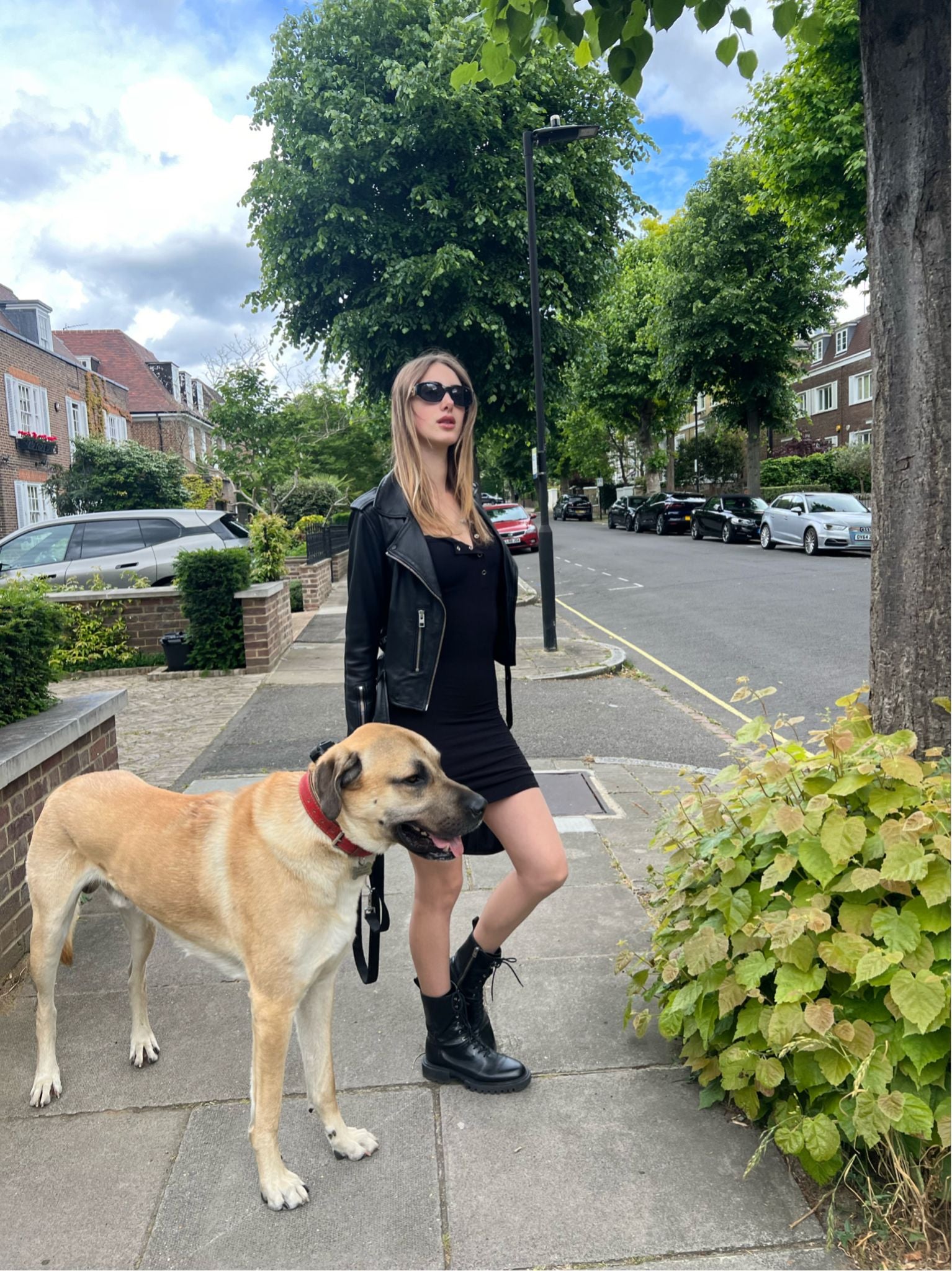
Isidora now wants to educate others about the Turkish Kangal breed to address any misconceptions about the “intelligent gentle giant”.
“I’m 5ft 11in and he’s roughly 6ft 1in when he stands up, so he’s taller than the average guy in London,” she said.
“One misconception is that when you type in ‘The Kangal’ on TikTok or Instagram, they’re often shown as being aggressive… but I think people find our content interesting because Pasha’s not like that.
“He is a Kangal but he’s like a king in London – he’s having his Puppuccino in Starbucks, he’s eating raw beef, raw mince.
“I don’t show him in this crazy, aggressive way, I want my audience to see the breed in a different light.”
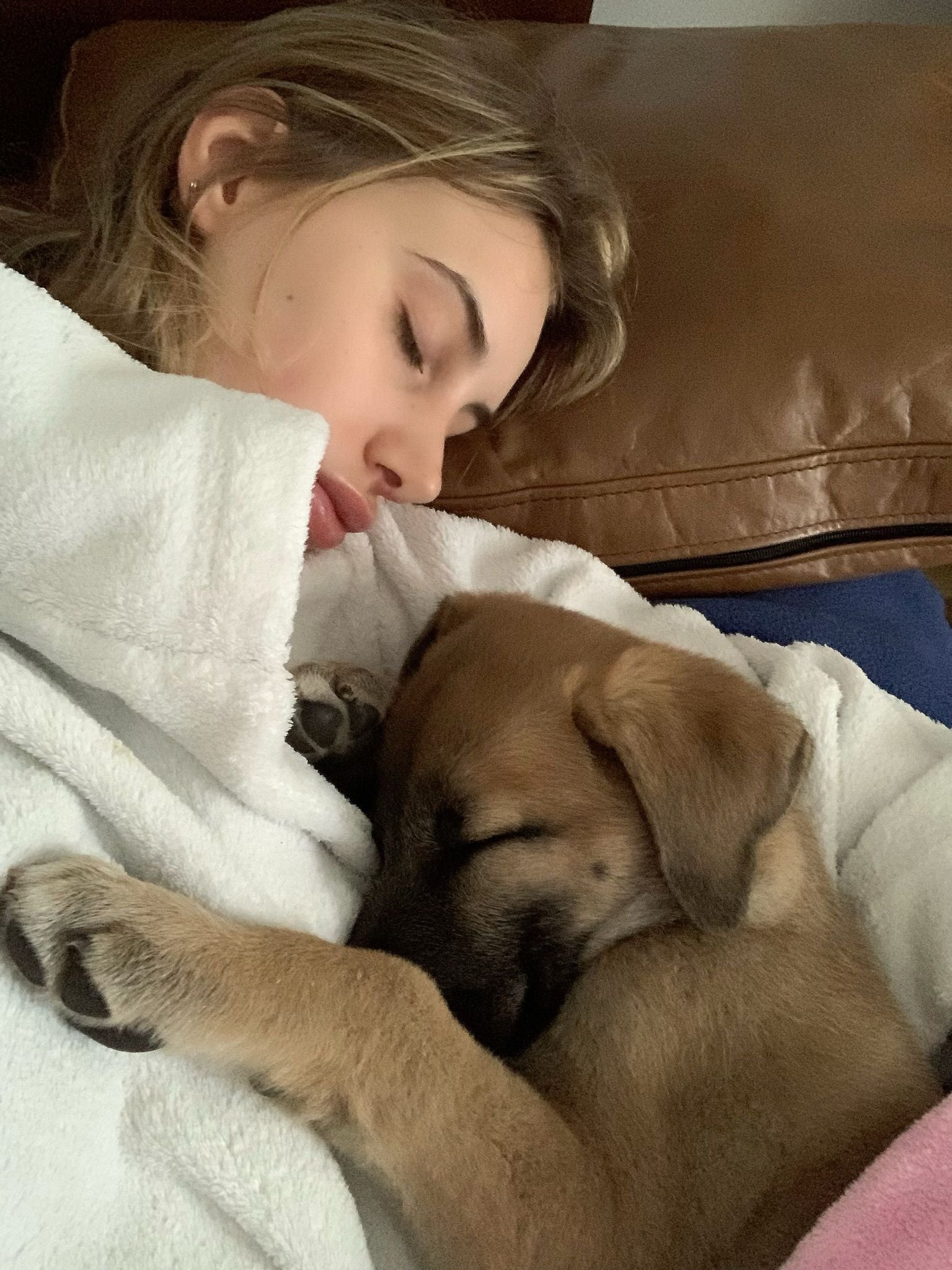
According to The Kennel Club, the Turkish Kangal is an active, dominant breed, typically used as a guarding dog for sheep and livestock.
For Isidora, she knew she wanted a large, protective dog as her first pet, such as a German Shepherd – but after doing extensive research, she came across Turkish Kangals.
While she said this breed is “rare and unique” in London, her family managed to find a breeder and she described the pup as “a perfect match” for them.
“I love him so much. He’s literally like my child, he’s a member of the family,” she said.
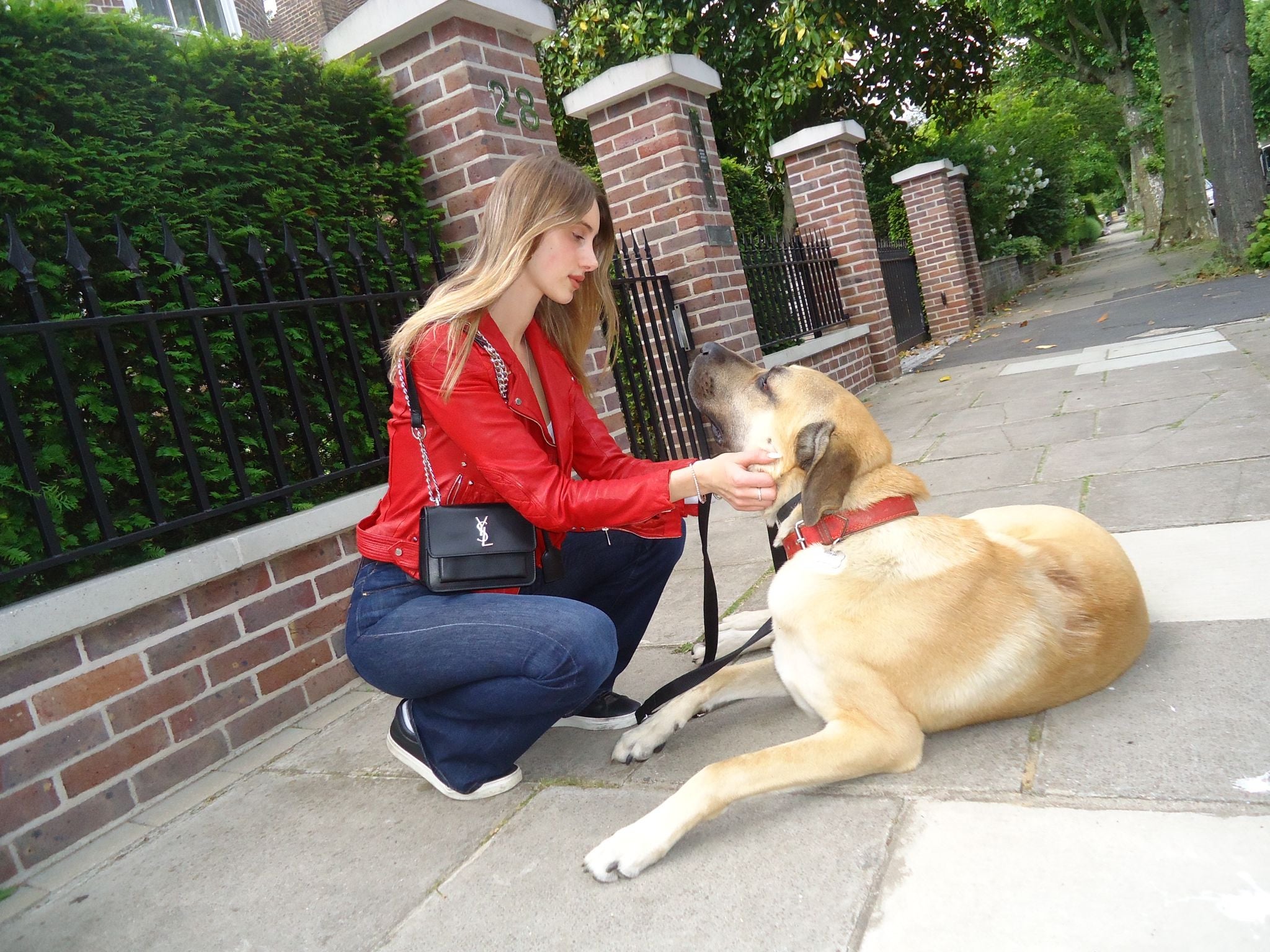
Isidora said Pasha was a “tiny little speck” at first, as he measured no longer than her forearm, but “within the blink of an eye” he became “huge”.
At three months old, Isidora said he looked like a fully grown Labrador – and now, he measures approximately 104cm (3ft 4in) from his feet to his head when on all fours.
While his stature may give the impression that he is aggressive, Isidora described him as quiet, gentle and independent – although he does have “one of the most powerful barks” she has ever heard.
Isidora said Pasha loves young people and socialising with strangers, and she travels everywhere with him, such as on the Tube and Overground and to pubs and cafes.
She said people will sometimes avoid him due to his size but most of the time strangers will crowd around him – and he now has a reputation in the capital, with “everyone” knowing his name.
“Every time I walk him, people are just putting their phones up and asking me, ‘Can I video him? Can I please take pictures of you?’” she said.
“Everyone knows my dog’s name, no one knows my name.”
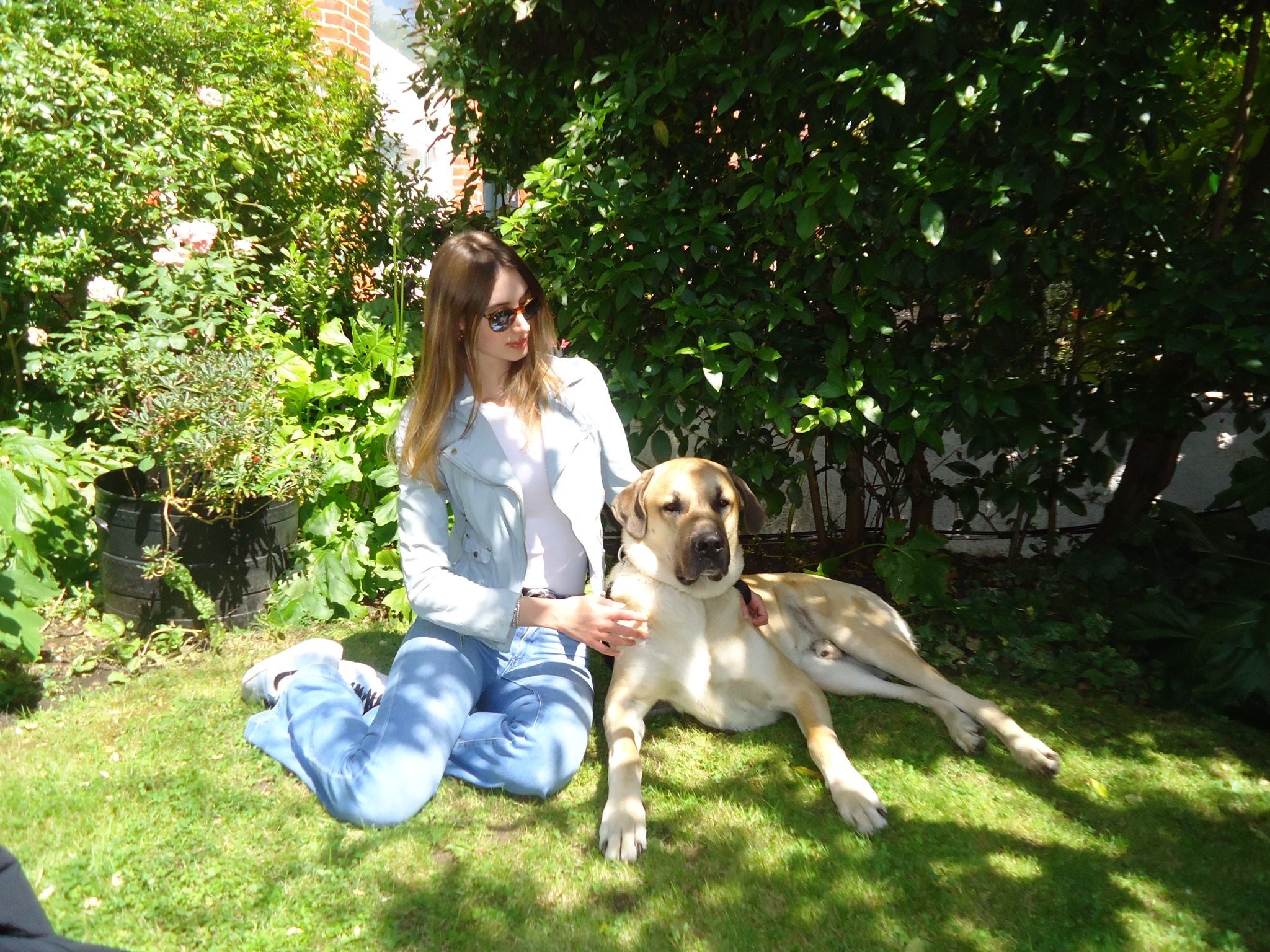
Isidora said she loves that she gets to meet new people when she is with Pasha, but she feels it is important to set boundaries and educate others on dog etiquette, as having a pet is a “huge responsibility”.
She thinks there are many “misconceptions about big dogs” and she wants to change this – and along with feeling unfulfilled in her previous job, this led her to focus on content creation on social media.
Isidora’s most popular video to date on Instagram is her showing how she makes Pasha his breakfast – and she said “people really are interested and fascinated by this dog”.
She explained that he eats around 1.3kg of food every day, and this is particularly important as he requires “quality exercise”.
He eats twice a day, and his meals include chicken mince, beef mince, oily fish, liver, a chicken carcass, heart, turkey wings, along with vegetables, fruits such as berries, Greek yoghurt and goat’s milk.
She said the meat alone costs around £80 to £100 each month, plus any additional costs for dry dog food and human food – but she has shown her followers how to make a meal on a budget, with one costing £3.60.
“Honestly anything from an animal that you could imagine, he will eat it, and then on the other side, he will eat anything that we eat,” she said.
“It sounds crazy, but he eats sandwiches for a snack – cheese, Philadelphia, a bit of salami – or if I’m making pasta, I’ll give him plain pasta and sprinkle Greek yoghurt on there with some Parmesan.”
Isidora appreciates the love and interest from her followers but often finds that people post negative and misleading comments, with many criticising his raw diet.
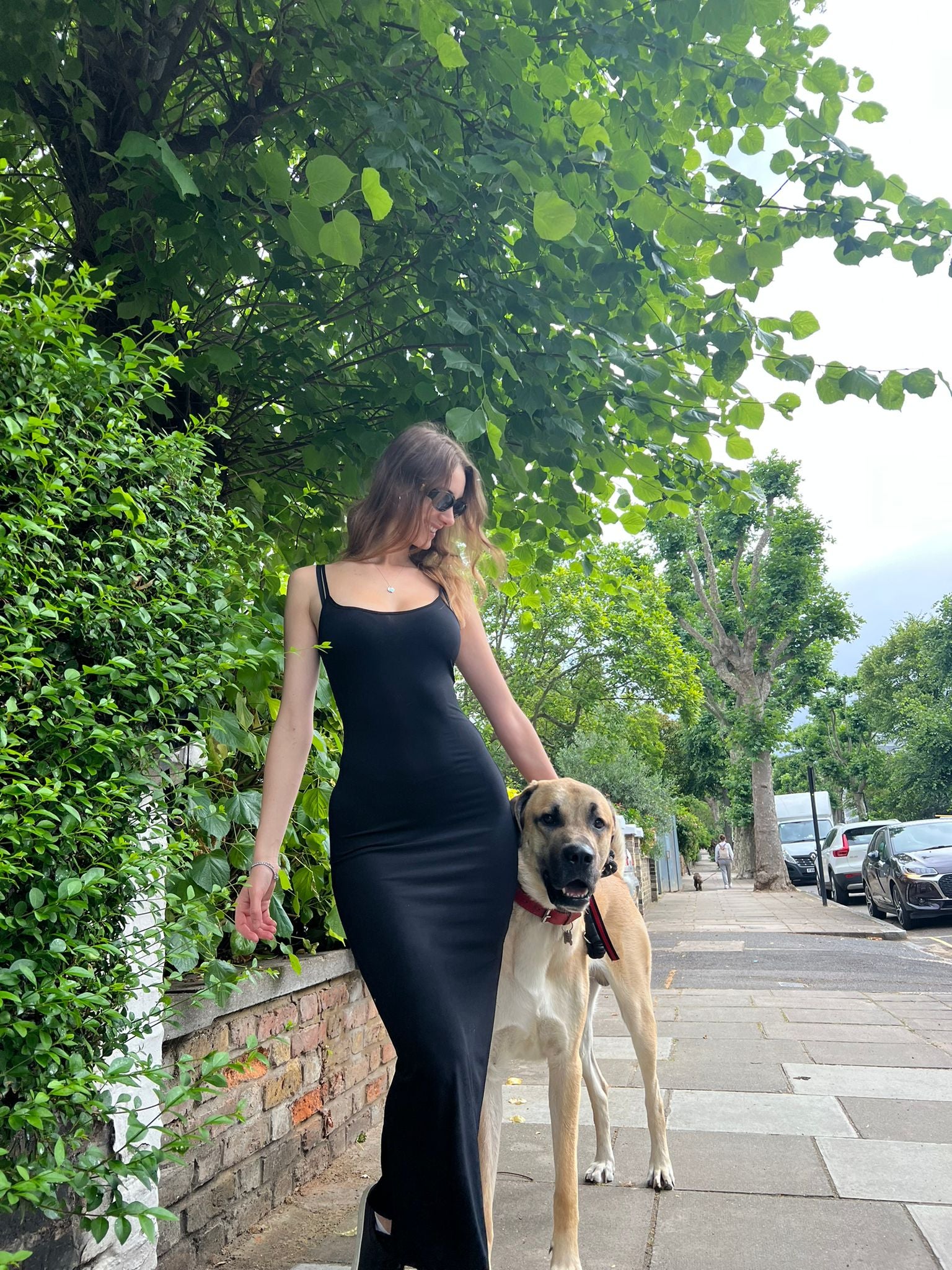
On the other hand, she will read “sexist” messages, such as: “A woman like you shouldn’t own a dog like that because you wouldn’t be able to handle it.”
Isidora ignores the negative comments and said most people are “fascinated” by the fact that she is a woman with a large dog, adding that it gives her “protection” and a “power (she’s) never had before”.
She wants to continue providing educational and fun content with Pasha at the centre as a “feminist icon”, and in the future, she hopes to start her own business, targeting gaps in the pet industry for larger dogs.
“My whole message is just be educated, especially with bigger dogs,” she said.
“Enjoy your time with your dog… enjoy the experience and really live the experience as well.
“Having Pasha is one of the most beautiful experiences I’ve ever had in my life.”
To find out more about Isidora and Pasha, search @pashakangal on Instagram.







